It’s clear that trouble is rapidly rising in the world and throughout the West in particular. The prospect of economic catastrophe or some other SHTF event seems all but certain.
Even if you don’t think our society can or will fundamentally change as we know it, there are still several significant advantages to being more self-reliant.
Independence from public utilities, the ability to source and produce your own food, and having the skills to live, really live, off your own land, your property, rather than depending on the increasingly shabby utilities of society are all fantastic ways of escaping the rat race formerly known as the American Dream.
So, if you’re looking to make a change, whether for economic reasons or some other reason, we’ve listed 50 excellent ways to start becoming more self reliant below.
You certainly don’t need to do them all at once, simply choose a couple that fit your current situation the best and start there.
When you’ve completed or mastered those, choose a couple more and so on. Before you know it, you’ll be living self sufficiently and your family will be better prepared to handle whatever life may throw at you in the future.
Table of Contents
Our Lives are Outsourced to the Point of Vulnerability
In our society, we outsource everything. We don’t grow our own food, we have someone else do it for us.
We don’t build our own homes, we hire contractors. Even the clothes we wear are made by someone else in a different country.
When everything is made more convenient and easy- for a price- we spend more on things that we should do ourselves, and we get weaker and less able in the bargain.
This dependence on others is not only costly, but it also leaves us vulnerable. If the power goes out, we are at the mercy of the utility company to get it back on. If there is a drought and crops fail, we have to rely on the grocery store to restock their shelves.
And if there is a major economic downturn, we could find ourselves unemployed with no safety net to fall back on. If something breaks and we don’t have the tools and know-how to fix it, we must do without or pony up and pay the man.
All of this can be avoided by learning to be self-reliant. Even if you live in an urban area, there are ways to become more independent.
You can grow a garden on your balcony or patio. You can learn to cook and preserve food. You can even start your own business from home!
You can do so much more than you think, if only you have the courage to try and the foresight to see how much you have outsourced!
Why Should Preppers be Self-Reliant?
There are a few primary reasons you should try to become self reliant. The first reason is that it will reduce dependency. If something happens and the normal flow of things stops, you’ll be in a much better position if you’re not totally dependent on others.
The second reason is increased confidence. Knowing that you can provide for yourself and your family in any situation will give you peace of mind and a feeling of security.
The third reason is money savings. Learning to do more for yourself, self-reliance, means less reliance on outside services, which can save you a lot of money in the long run – especially if there’s an economic collapse or some other major disaster.
There are many ways you can become more self-reliant, but it will take some time and effort to get there. One way is to learn new skills that will allow you to be more independent.
For example, learning how to grow your own food, fix your own car, or build a solar oven are all great skills to have.
Another way is to reduce your dependency on public utilities by installing things like solar panels, a rainwater catchment system, or a wood-burning stove.
You can also live off the land by raising chickens for eggs, rabbits for meat, goats for milk, etc. This takes some planning and research beforehand, but it’s definitely possible with a little work.
The bottom line is that becoming self reliant should be one of your top priorities as a prepper. It will increase your independence, confidence and savings – all of which will help you achieve the goal of being prepared!
The rest of this article will give you a bunch of good ideas for starting off a season of self-reliance right!
The Positive Feedback Loop of Radical Self-Reliance
There is a positive feedback loop of radical self-reliance. The more you do for yourself, the easier it becomes and the less reliant you are on others.
This in turn makes you even more capable and independent, which leads to still further self-reliance. It’s a virtuous circle that will make you stronger and better prepared for any situation!
When you see and experience the massive “sea changes” in your life resulting from your own decisions and good judgment, it will yield a spiritual and emotional sense of accomplishment that cannot be matched!
Self-reliant people are more fulfilled, happier and less stressed out. You’ll even notice that their capacity for stress is reduced!
They sort of fit a new outlook into the slots and spaces where all that stress and anxiety used to dwell. Their attitude changes from “Can I figure this out?” to “I’ll have this figured out in no time.”
They don’t have the nagging feeling in the back of their mind that they’re not doing things “right” or that someone else could do it better. They know they’re doing the best they can with what they have, and that’s good enough!
Self-reliance also has a funny way of breeding more self-reliance. As you become more independent, you’ll find yourself wanting to do more for yourself and your family.
You’ll take on new projects and challenges, and before long you’ll be an expert in all sorts of things!
This newfound confidence will carry over into other areas of your life, making you even more confident, more capable and more… self-reliant! See how it perpetuates?
So why should preppers be self-reliant? There are lots of good reasons, but ultimately it comes down to this: it makes you stronger, happier and more prepared for whatever life throws at you!
Low Cost Ways to Start Becoming More Self Reliant
If you’re just getting started on the path to becoming more self reliant and are still working with a limited budget, below are several different free or low cost actions you can take.
All of these are skills or actions that will put you well on the path to self sufficiency, no matter where you live.
It can even be something simple like doing your own chores if you have not done them before or hire someone to do them for you.
Don’t laugh; doing your own laundry, the dishes and cleaning up other messes around your apartment or would-be homestead might seem like piddly achievements, but they could be the first and most important step in a new journey that will bolster your self-worth.
#1. Learn a Trade Skill Useful to Others which isn’t dependent on public power or other public services and can be used to barter for needed items, such as carpentry, plumbing, hide tanning, electrical, or woodworking.
#2. Increase Your Physical Fitness and Strength which will make doing daily physical tasks easier and will give you an advantage in a self defense or SHTF scenario.
#3. Master Fire Starting in All Types of Conditions so that you can cook and keep yourself and family warm in a grid down situation.
#4. Train to Forage and Identify Wild Edibles which can save you money in your food budget and be used to supplement your diet if grocery stores are shut down.
#5. Learn to Make Cordage from Natural Materials such as vines, grasses, tree bark, etc.
#6. Reduce Monthly Expenses by cutting out the services that you don’t absolutely need. Prioritize needs over wants and put extra money into savings or use to pay down debt.
#7. Practice Knot Tying which is useful if you have to build shelter, adjust fishing equipment, or for any number of different survival tasks.
#8. Begin Composting to lower the amount of waste that you must dispose of and to enhance soil for gardening.
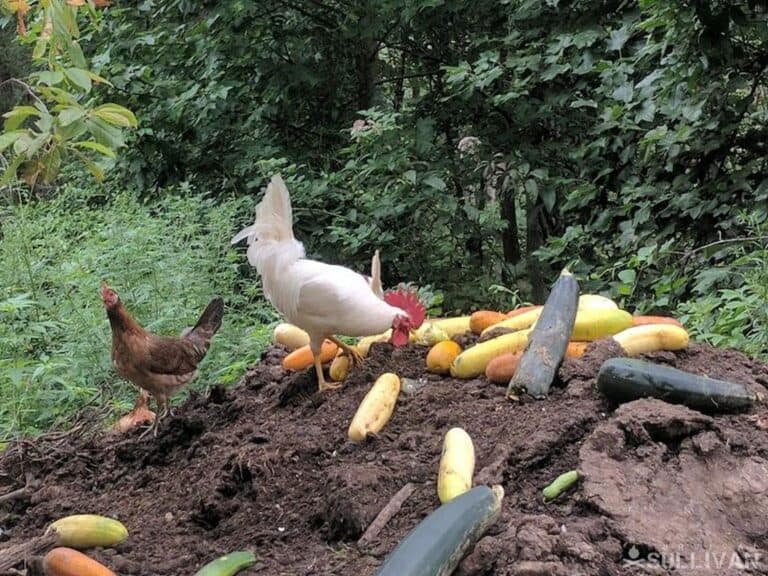
#9. Master the Art of Negotiation by learning body language and other types of tells now so you can confidently barter with others during an economic collapse.
#10. Learn to Properly Purify Water because in any kind of economic collapse or SHTF situation, fresh water for drinking will be critical to preventing illness and to your survival.
#11. Stop Using Disposable Items such as paper towels, paper plates, etc. Although they are more convenient, they cost more money. Invest in linen napkins, hand towels, and washable plates and use these instead.
#12. Recycle and Reuse Items to create what you need which will save money and prevent waste from building up in a landfill or in your backyard.
#13. Bake Your Own Bread to save money and practice the skill to prepare for a time when grocery stores are inaccessible or shut down.
#14. Plant Berry Bushes and Fruit Trees and then dehydrate them for long term storage to save money and add to your family food stockpile.
#15. Master Use of Healing Herbs so you can grow your own and use these to keep your family healthy in an economic collapse or grid down situation.
#16. Replace Store Bought Cleaning Supplies with Natural Cleaning Methods which is healthier for your family and can save you tons of money which can be put into savings or used to pay off debt.
#17. Pay Down Debt as much as possible with a goal of becoming debt free.
#18. Cook from Scratch More Often which will save you money and be healthier for your family.
#19. Repair Broken Items instead of replacing them with new ones to save money and pay off debt quicker.
#20. Learn to DIY Things You Need so you can save money now and be able to make what you need in a grid down or economic collapse scenario.
#21. Get to Know Your Neighbors and form a plan to protect your local area and to barter skills and products.
#22. Practice Making Useful Items from Scavenged Items so that you can confidently make what you need if traditional ways of getting parts are shutdown.
#23. Eliminate Addictive or Bad Habits so that you won’t be dependent on something like cigarettes or alcohol which will be scarce and pricey in times of turmoil.
#24. Learn to Repair Your Own Equipment which will save you money on expensive repairmen now and can help you continue to be self reliant when SHTF.
#25. Enlist Family and Friends To Create a Mutual Assistance Group which can trust one another to share skills, barter, and join together for defense purposes.
Read even more low-budget more ways to prep here.
Ways to Start Becoming More Self Reliant with Minimal Investment
There are a number of different ways to become more self sufficient that have an initial cost for getting started but do not require a significant investment. Look through the list below and identify several methods that might work for your situation.
#26. Plan for Alternative Ways to Cook without public power such as a wood cookstove, solar oven, or open fire, in case the grid goes down.
#27. Raise Poultry for Eggs and Meat to feed your family, sell, or barter with if needed.
#28. Store Water and Implement a Plan for Continuous Water
#29. Learn to Sew both cloth and hides so that you can make your own clothes, generate additional income, or barter.
#30. Plant a Garden even if you start small and then gradually expand it until you are producing most if not all of the produce your family needs. Extra produce can also be sold for additional income or used for bartering.
#31. Raise Rabbits for Meat as a supplemental protein in your diet. Rabbits can be raised in very little space and without drawing attention from neighbors which is safer in a SHTF situation.
#32. Stockpile Staple Foods and Supplies which you can’t produce easily on your property such as sugar, salt, rice, and flour.
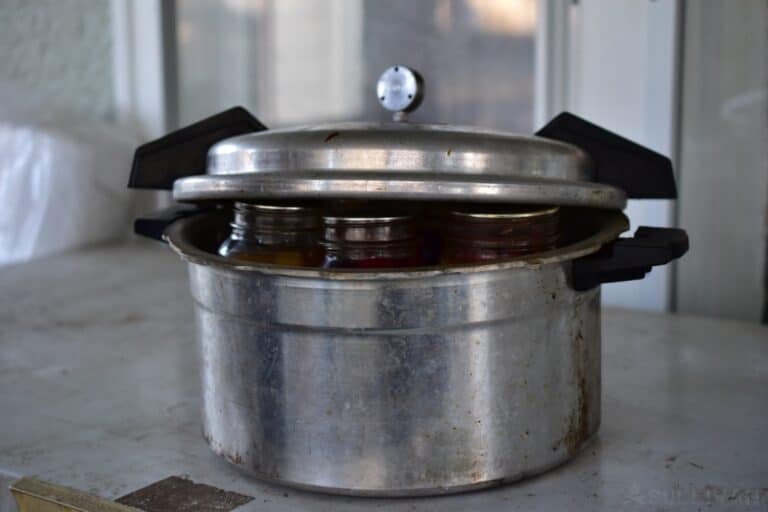
#33. Master Home Canning and accumulate a stockpile of food in your pantry which can be rotated to save money now and to feed your family in winter months if grocery stores are shutdown or inaccessible.
#34. Learn Food Dehydration Methods so you can properly store fruits and other foods long term without refrigeration.
#35. Purchase and Learn to Use Manual Tools so that you are prepared to make repairs and maintain your home and equipment to save money or in a grid down situation.
#36. Stockpile Auto Supplies so you can maintain and repair your own car instead of paying someone to do it or having to rely on alternative transportation.
#37. Make Your Own Soaps to save money, reduce your use of chemicals, and to sell or barter.
#38. Reduce Dependence on Public Power by doing without power for increasingly longer periods of time. Can you survive without it for a weekend? A week? Longer?
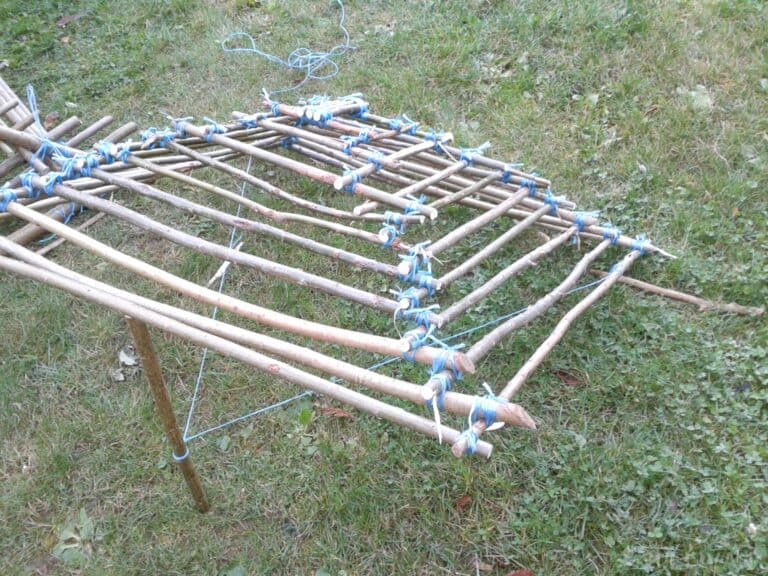
Additional Ways to Start Becoming More Self Reliant
Below are still more ways to start becoming more self reliant. Many of these require a significant investment up front which will pay off for years by enabling you to save money on public utilities or continue to survive when traditional power is unavailable.
#39. Identify and Plan Alternative Heating Methods so you can heat your home, woodstove, solar power, geothermal, etc. without relying on power from the grid.
#40. Build a Traditional Spring House over a creek or well on your property to use for refrigeration of dairy products such as milk and cheese if power is down.
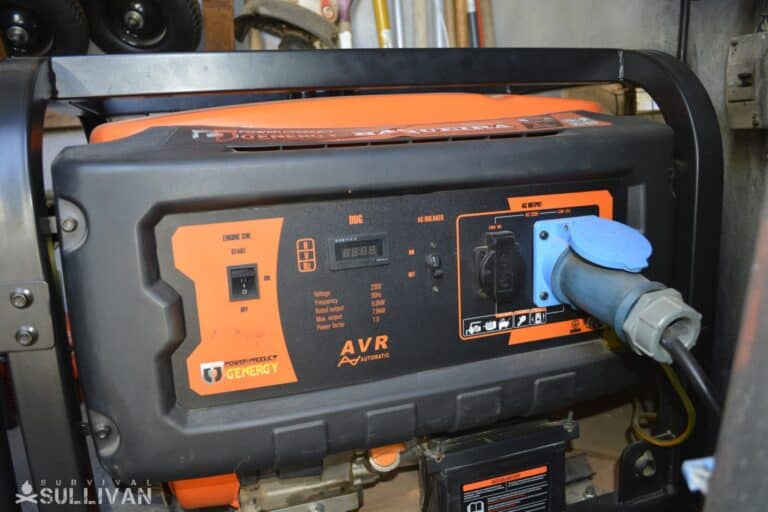
#41. Invest in a Backup Generator for times when you need temporary power such as charging electronics.
#42. Master Hunting and Trapping Skills to put food on your table but also to use any excess meat or hides for bartering.
#43. Learn to Properly Save and Preserve Seeds so that you can produce a garden year after year without dependence on purchasing seeds elsewhere.
#44. Build a Root Cellar to store root vegetables and other food for lean times.
#45. Make Your Own Cheese and Dairy Products from a dairy cow or goat to supplement your diet and reduce your reliance on grocery stores.
#46. Learn to Properly Field Dress Various Game so that you can provide food for your family that won’t make them sick.
#47. Practice Firearm Use and Self-Defense so you can protect your family and property from anyone who might try to do you harm.
#48. Create an Emergency Fund of accumulated cash to cover your expenses for 3 to 6 months or longer so you can survive any kind of short term personal economic hardship.
#49. Identify Additional Ways to Make Money or Produce Items to Barter from your property such as homemade crafts, beekeeping (honey), wormfarm (bait for fishing), etc.
#50. Learn About and Implement Animal Husbandry so you can be confident in your ability to continue to produce animals to raise for food and/or for bartering.
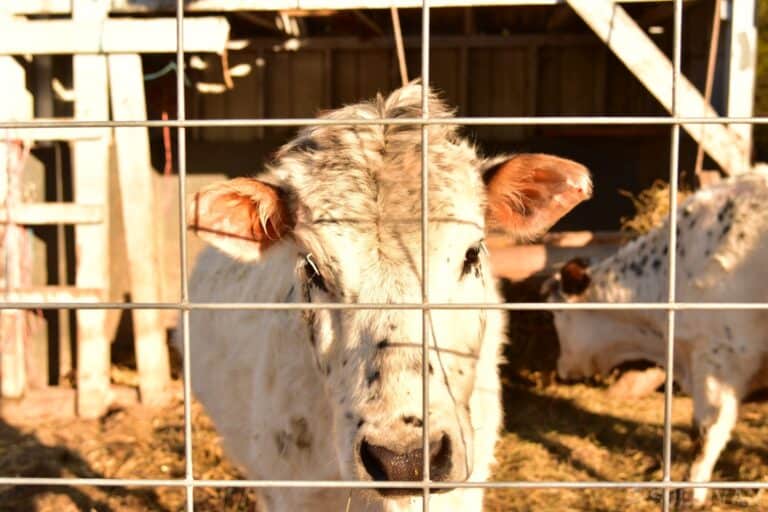
Which of the above ways to start becoming more self reliant have you mastered already? Which one will you start next? How far have you come on your journey to becoming more self reliant? Let us know in the comments below.
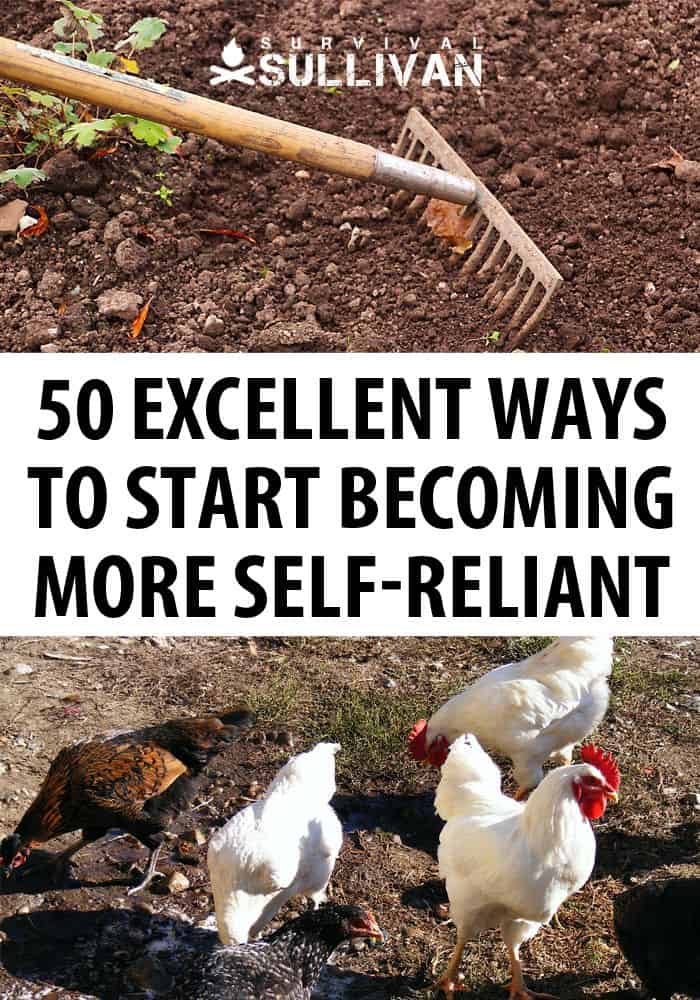

Born and raised in NE Ohio, with early memories that include grandpa teaching her to bait a hook and watching her mom, aunts, and grandmothers garden, sew, and can food, Megan is a true farm girl at heart.
For Megan, the 2003 blackout, the events of 911, and the increasing frequency of natural disasters like Hurricane Katrina, spurred a desire to be more prepared. Soon to be living off-grid, this mother of four and grandmother of ten is learning everything she can about preparedness, survival, and homesteading.

In other words, to sum up all this information, live like my Indigenous Native North American ancestors prior to European contact
But the most important part omitted is pray daily to the Creator for providence and guidance otherwise you shall never survive any historic calamity s a Nation.
@Rain Raven. I hate to tell you but, prayer never fed the bulldog. It’s simply a hoax designed to suck money out of the wallets of the weak.
Of course it did.
Although, you are correct about one thing: 99% of “religious organizations” are false “religious entertainment” businesses.
Seek God in his word and you shall find him.